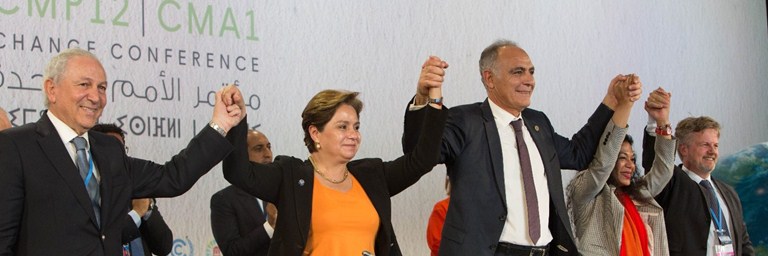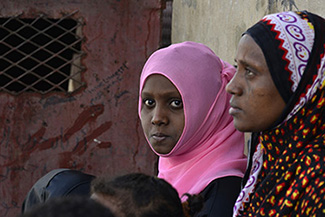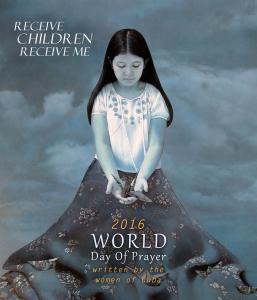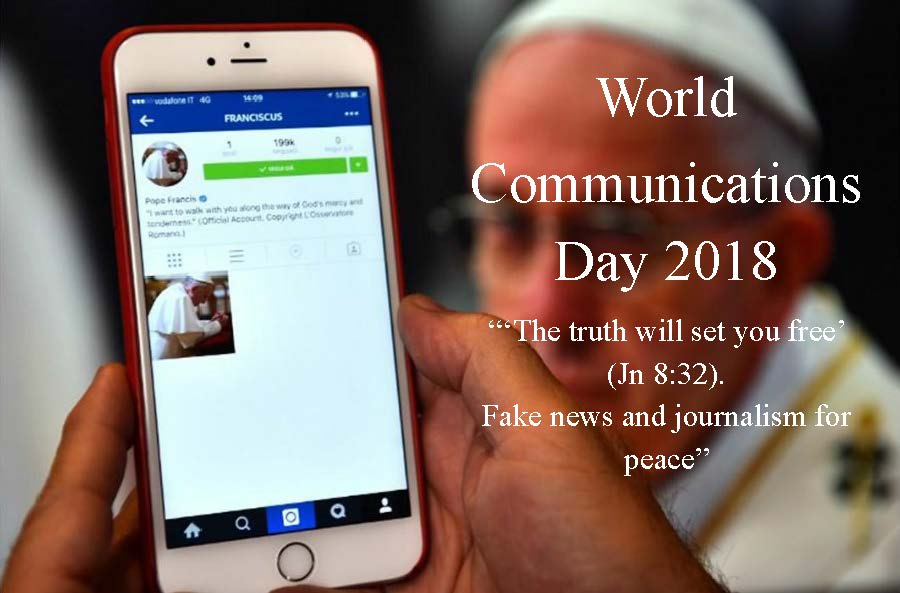 World Communications Day is a worldwide celebration which follows the 1963 decree Inter Mirifica addressing the media of social communications and which was published during the Second Vatican Council. World Communications Day is now marked annually in most countries on the Sunday before Pentecost Sunday, which this year falls on 13 May. In some countries, the day is marked as the solemnity of Ascension.
World Communications Day is a worldwide celebration which follows the 1963 decree Inter Mirifica addressing the media of social communications and which was published during the Second Vatican Council. World Communications Day is now marked annually in most countries on the Sunday before Pentecost Sunday, which this year falls on 13 May. In some countries, the day is marked as the solemnity of Ascension.
Pope Francis announced the 2018 theme for the 52nd World Communications Day to be: “’The truth will set you free’ (Jn 8:32). Fake news and journalism for peace.” This year’s message focuses on the harmful effects of fake news against journalism for peace.
The first World Communications Day was observed on May 7, 1967, under the pontificate of Blessed Pope Paul VI, who wished to draw attention to the communications media and the enormous power they have for cultural transformation.
Pope Francis’ 2018 message which was published on 24 January, the feast day of Saint Francis de Sales (1567 – 1622), bishop of Geneva and founder of the Visitation Sisters. Saint Francis de Sales is the patron saint of writers, editors and journalists.
Pope Francis starts his message with these words:
“Communication is part of God’s plan for us and an essential way to experience fellowship. Made in the image and likeness of our Creator, we are able to express and share all that is true, good, and beautiful. We are able to describe our own experiences and the world around us, and thus to create historical memory and the understanding of events…”
And he concludes in this way:
« Drawing inspiration from a Franciscan prayer, we might turn to the Truth in person:
Lord, make us instruments of your peace.
Help us to recognize the evil latent in a communication
that does not build communion.
Help us to remove the venom from our judgements.
Help us to speak about others as our brothers and sisters.
You are faithful and trustworthy;
may our words be seeds of goodness for the world:
where there is shouting, let us practice listening;
where there is confusion, let us inspire harmony;
where there is ambiguity, let us bring clarity;
where there is exclusion, let us offer solidarity;
where there is sensationalism, let us use sobriety;
where there is superficiality, let us raise real questions;
where there is prejudice, let us awaken trust;
where there is hostility, let us bring respect;
where there is falsehood, let us bring truth.
Amen.
FRANCIS
From the Vatican, 24 January 2018, the Memorial of Saint Francis de Sales.
Source: Text & Image: www.catholicbishops.ie
 There are an estimated 370 million indigenous people in the world, living across 90 countries. They make up less than 5 per cent of the world’s population, but account for 15 per cent of the poorest. They speak an overwhelming majority of the world’s estimated 7,000 languages and represent 5,000 different cultures.
There are an estimated 370 million indigenous people in the world, living across 90 countries. They make up less than 5 per cent of the world’s population, but account for 15 per cent of the poorest. They speak an overwhelming majority of the world’s estimated 7,000 languages and represent 5,000 different cultures.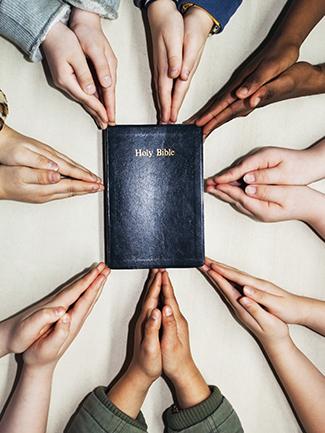
 Through World Day of Prayer, we affirm our faith in Jesus Christ and engage with the whole world, are enriched by the faith experience of Christians of other countries and cultures, share the burdens of other people by praying with them and for them, and use our own talents in the service of God’s world. Prayer and action are inseparable and both have immeasurable influence in the world.
Through World Day of Prayer, we affirm our faith in Jesus Christ and engage with the whole world, are enriched by the faith experience of Christians of other countries and cultures, share the burdens of other people by praying with them and for them, and use our own talents in the service of God’s world. Prayer and action are inseparable and both have immeasurable influence in the world.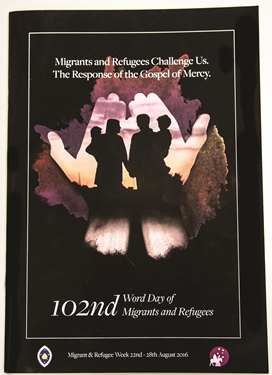 The theme chosen by Pope Francis for 2016 is “Migrants and Refugees Challenge Us. The Response of the Gospel of Mercy.”
The theme chosen by Pope Francis for 2016 is “Migrants and Refugees Challenge Us. The Response of the Gospel of Mercy.”